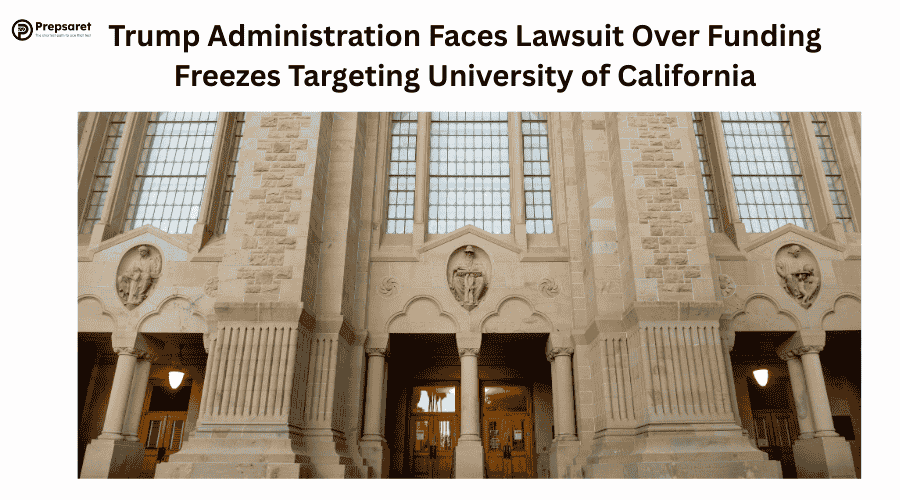Key Points:
- Faculty, staff, students, and labor unions sue the Trump administration, alleging unlawful funding freezes meant to suppress academic freedom.
- The University of California, while not a plaintiff, says federal actions threaten research, free speech, and economic competitiveness.
- Critics call the government’s settlement demands “extortion,” as lawsuits mount over academic independence and civil rights.
Lawsuit Challenges Federal Pressure on Higher Education
A coalition of faculty, labor unions, and student organizations within the University of California system has filed a lawsuit against the Trump administration, accusing it of using federal funding freezes to intimidate and control universities. The complaint, lodged in the U.S. District Court for the Northern District of California, seeks to prohibit the government from using financial threats to influence academic policies and to restore previously suspended funds.
The coalition, led by the American Association of University Professors and represented by the legal advocacy group Democracy Forward, argues that the administration’s actions are politically motivated. According to the filing, federal probes into campus speech, diversity initiatives, and protests reflect “disdain for curriculum, expressive activity, and equity programs.”
While the University of California itself is not a party to the lawsuit, officials said they are pursuing parallel legal and advocacy efforts. “Federal cuts to research funding threaten lifesaving biomedical research, hamper U.S. competitiveness, and jeopardize public health,” spokesperson Stett Holbrook warned.
Rising Tensions Over Academic Freedom and Federal Authority
The legal battle follows high-profile enforcement actions against UCLA and other campuses. UCLA was fined $1.2 billion and saw hundreds of millions in research funds frozen after federal officials alleged the university allowed antisemitism and civil rights violations on campus. Governor Gavin Newsom denounced the administration’s $1 billion proposed settlement as “extortion.”
Critics also point to sweeping settlement demands that included providing faculty and student data, ending diversity scholarships, banning overnight protests, and cooperating with immigration enforcement. Civil rights advocates argue such conditions amount to political overreach designed to reshape higher education in line with the administration’s agenda.
The White House has rejected these claims, framing the lawsuit as an effort by “victimhood-seeking professors” to shield excessive costs. Officials say their aim is responsible oversight of federal funds, not political interference.
University of California President James Milliken has described the government’s actions as one of the gravest threats in the institution’s history. The UC system—spanning 10 campuses and colleges, nearly 300,000 students, and more than 265,000 faculty and staff—receives over $17 billion annually in federal funding. With additional probes now targeting multiple campuses, the outcome of this lawsuit could reshape the balance between federal oversight and academic independence nationwide.

